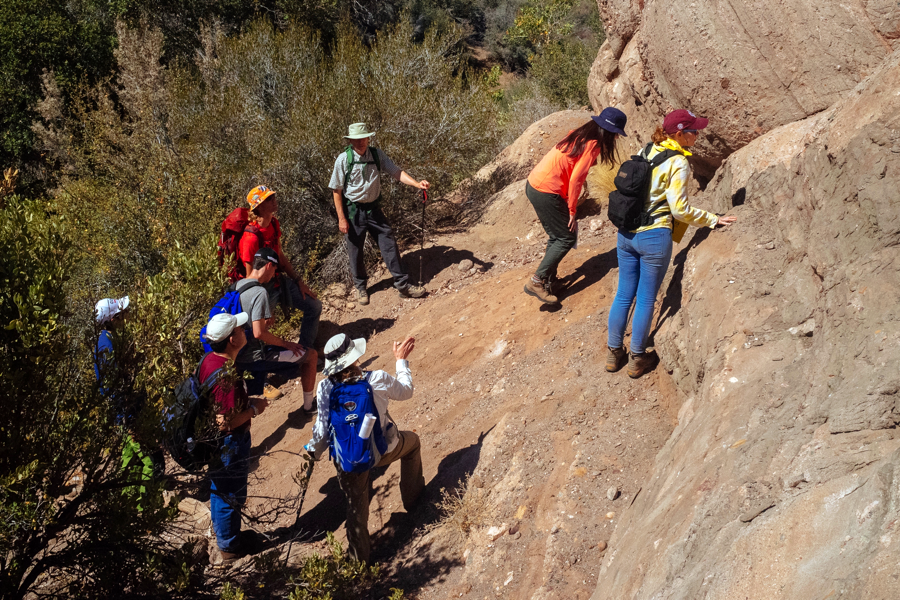All Categories
Featured
Table of Contents
Geophysics in Tuart Hill WA 2020
Are you looking for the right type of b-school? Connect with MBA programs seeking candidates like you. Check out schools of all sizes, ranked colleges, city and big-campus schools and more. Apply. Pay. Prep. Research study. Prosper. We have actually got you covered. Connect with master's programs around the country to get an edge over the competition.

A geophysicist studies various aspects of the earth. According to the U.S. Geological Study, they study gravity, magnetic, electrical, and seismic activity events. Geophysicists also record, evaluate, and take measurements of geographic functions and abnormalities. Watch a video to learn what a geophysicist: Geophysicists should make a minimum of a bachelor's degree; nevertheless, this is for an entry-level position.
If you want do research study you should pursue a Ph. D. Undergraduate coursework generally includes geology, mathematics, ecological science, or physics. Advanced degrees need more particular studies in the specialty of option. Locations can include oceanography, climatic physics, meteorology, planetary, petroleum, ecological, and mining. Task prospects are greater if you have a strong background in computer technology or innovation.
Importance Of Geophysical Surveys — Methods And Uses in Samson Australia 2020
Access to these chances might be limited depending upon where you live; however, internships or summer season programs with geophysical companies, university geophysics department, or the U.S. Geological Survey can be choices. You can find a list of a list of opportunities on the United States Geological Study (USGS) websites' Path Programs tab (opens in another link).
Geophysicists likewise work with computer systems while investigating, so computer system courses can also be helpful, as discussed previously in this article. Lots of geophysicists specialize in an area of geophysics.
A geophysicist's duties can consist of measuring, tracking, and documenting information from different physical homes on earth. Geophysicists frequently have to travel worldwide to analyze geological occasions that have taken place or might have been predicted.
What Is A Seismic Survey? in Cannington Aus 2022
For circumstances, Jay Wellik, a geophysicist, studies volcanos. His area of know-how in geophysics is looking into why volcanos emerge and what indicators there may be that an eruption may take place. He tracks seismic activity and then follows what takes place before, during, and after a volcano emerges. Geophysicists generally work full-time hours; however, they often work irregular hours, as pointed out formerly.

You can discover additional details about Geophysicists together with additional instructional products on the U.S. Geological Study site (links open in a brand-new window). Laura Stern, of the U.S. Geological Survey at the Gas Hydrates Lab in Menlo Park, California: We make a variety of various hydrates in the laboratory.
We also make carbon dioxide hydrate, ethane hydrate, propane, a number of various structures. It's about 100 degrees cooler than the temperature level at which these hydrate samples would dissociate, when they would break down to ice plus gas on the tabletop.
What Is Geophysics? in Leederville Western Australia 2023
So the samples we make, their polycrystalline. They look like snow, it looks like compacted snow however truthfully, it does contain gas inside. Take a little piece off here and as it warms up, you'll begin to see it pop. It's going back to ice plus gas and then as the ice would melt as it continues to warm, it will wind up being water plus gas.
My name is Steve Kirby, I'm a Geophysicist here at the U.S. Geological Survey in Menlo Park. I work with Laura Stern who is also a Geophysicist in this laboratory that adheres towards the investigation of planetary ices and gas hydrates. Gas hydrates in nature occur in really remote locations and they are extremely intricate with the interactions and conditions that they form under and samples that are raised are under some sort of alternation or decomposition.
This is an uncommon lab and there are just a handful of them worldwide and we are really lucky to be here at the Geological Study and to have the chance of dealing with them. Bureau of Labor Statistics, U.S. Department of Labor, Occupational Outlook Handbook, Geoscientists. National Center for O * Internet Advancement.
Career Guide: Geophysicist in Inglewood Aus 2022
This video was produced by the government for the U.S. Geological Study. The USGS Gas Hydrates Lab is moneyed by the Department of Energy and the USGS Gas Hydrates Job.
Latest Posts
Geophysical Survey in Jandakot Australia 2020
Geophysics Definition & Meaning in Roleystone Oz 2021
Geophysical Survey - Explore The Seafloor in Kinross WA 2021